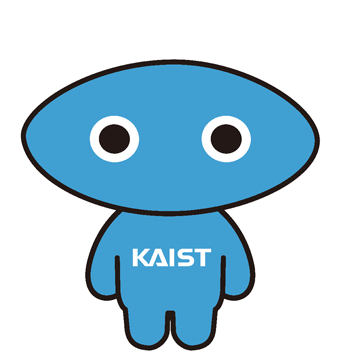Two Step Game

Actions
각각의 agent는 0 또는 1을 선택할 수 있고, 결과는 state에 따라서 다릅니다. 밑의 표 참고.
State
| state | global_reward | done |
|---|---|---|
| 0 | 0 | False (0,*)->state(1) (1,*)->state(2) |
| 1 | 7 | True |
| 2 | (0,1)->0 (1,0)->8 otherwise->1 |
True |
- (a,b)에서
a:agent_1's action,b:agent_2's action
Observations
각 Agent마다 Observation을 가지게 된다. np.concatenate([self.state, [agent_index]])로 구현되며, state 2 상태의 2번 째 Agent라면, [0,0,1,2] 형태로 나온다.state 0 상태의 1번 째 Agent라면, [1,0,0,1].
구현에서는 dict 타입으로 observaiton을 반환하며, state를 따로 줄 수도 있다.
def _obs(self):
if self.with_state:
return {
self.agent_1:{
"obs": self.agent_1_obs(),
ENV_STATE:self.state
},
self.agent_2:{
"obs":self.agent_2_obs(),
ENV_STATE:self.state
}
}
else:
return {
self.agent_1 : self.agent_1_obs(),
self.agent_2 : self.agent_2_obs()
}
# === obsevation of each agent ===
def agent_1_obs(self):
if self.one_hot_state_encoding:
return np.concatenate([self.state, [1]])
else:
return np.flatnonzero(self.state)[0]
def agent_2_obs(self):
if self.one_hot_state_encoding:
return np.concatenate([self.state, [2]])
else:
return np.flatnonzero(self.state)[0] + 3Rewards
Reward는 State에서 구한 Global Reward 값의 절반이다.
rewards = {
self.agent_1: global_rew / 2.0,
self.agent_2: global_rew / 2.0
}MADDPG with TwoStepGame MultiAgent Environment
rllib/contrib/maddpg에는 이미 MADDPG모델이 구현이 되어 있습니다.
Two Step Game 환경에서 모델을 학습시키겠습니다.
configuration
multi agent 환경이므로 multiagent 키를 추가해줍니다. 또한, agent_id에 대해서 policy를 mapping해주는 policy_mapping_fn도 필요합니다.
config = {
"learning_starts": 100,
"env_config": {
"actions_are_logits": True,
},
"multiagent": {
"policies": {
"pol1": (None, Discrete(6), TwoStepGame.action_space, {"agent_id": 0}),
"pol2": (None, Discrete(6), TwoStepGame.action_space, {"agent_id": 1}),
},
"policy_mapping_fn": lambda x: "pol1" if x == 0 else "pol2",
},
"framework": "torch" if args.torch else "tf",
# Use GPUs iff `RLLIB_NUM_GPUS` env var set to > 0.
"num_gpus": int(os.environ.get("RLLIB_NUM_GPUS", "0")),
}tune
config에 env를 추가해줍니다. 위의 코드에서 env:~~로 추가할 수도 습니다. 여기서는 dictionary에 새로운 원소를 추가하는 부분이라서 그대로 사용했습니다.
ray.init(num_cpus=args.num_cpus or None)
stop = {
"episode_reward_mean": args.stop_reward,
"timesteps_total": args.stop_timesteps,
}
config = dict(config, **{"env": TwoStepGame})
# === train ===
results = tune.run("contrib/MADDPG", stop=stop, config=config, verbose=1)만일 제대로 동작하지 않는다면pip install tensorflow-probability==0.7.0 으로 tfp를 설치해야 합니다.
References
[1] tfp error https://github.com/ray-project/ray/issues/6895
[2] https://github.com/ray-project/ray
Appendix
What I found
- MADDPG의 Output은 Action에 대한 logit이다.
Dict.get("name", False)는 "name"에 대한 값을 가져오며 키가 없다면 두 번째 파라미터를 반환한다.- Constant 값
ENV_STATE는"state"값이다. - state가 같이 있다면,
observaiton_space는dict타입이고, 아니면gym.space.MultiDiscrete타입이다 - np.flatnonzero(self.state)[0] + 3 # give the index of nonzero parts
np.flatnonzero([0,0,100,200])
# [2, 3]MADDPG full code
"""The two-step game from QMIX: https://arxiv.org/pdf/1803.11485.pdf
Configurations you can try:
- normal policy gradients (PG)
- contrib/MADDPG
- QMIX
See also: centralized_critic.py for centralized critic PPO on this game.
"""
import argparse
from gym.spaces import Tuple, MultiDiscrete, Dict, Discrete
import os
import ray
from ray import tune
from ray.tune import register_env, grid_search
from ray.rllib.env.multi_agent_env import ENV_STATE
from ray.rllib.examples.env.two_step_game import TwoStepGame
from ray.rllib.utils.test_utils import check_learning_achieved
parser = argparse.ArgumentParser()
parser.add_argument("--num-cpus", type=int, default=0)
parser.add_argument("--as-test", action="store_true")
parser.add_argument("--torch", action="store_true")
parser.add_argument("--stop-reward", type=float, default=7.0)
parser.add_argument("--stop-timesteps", type=int, default=50000)
if __name__ == "__main__":
args = parser.parse_args()
config = {
"learning_starts": 100,
"env_config": {
"actions_are_logits": True,
},
"multiagent": {
"policies": {
"pol1": (None, Discrete(6), TwoStepGame.action_space, {"agent_id": 0}),
"pol2": (None, Discrete(6), TwoStepGame.action_space, {"agent_id": 1}),
},
"policy_mapping_fn": lambda x: "pol1" if x == 0 else "pol2",
},
"framework": "torch" if args.torch else "tf",
# Use GPUs iff `RLLIB_NUM_GPUS` env var set to > 0.
"num_gpus": int(os.environ.get("RLLIB_NUM_GPUS", "0")),
}
# === setup ===
ray.init(num_cpus=args.num_cpus or None)
stop = {
"episode_reward_mean": args.stop_reward,
"timesteps_total": args.stop_timesteps,
}
config = dict(config, **{"env": TwoStepGame})
# === train ===
results = tune.run("contrib/MADDPG", stop=stop, config=config, verbose=1)
if args.as_test:
check_learning_achieved(results, args.stop_reward)
ray.shutdown()
'딥러닝 > 강화학습(RL)' 카테고리의 다른 글
| [Remark] Why contraction property is important for Bellman operator (0) | 2022.01.03 |
|---|---|
| [🤖Bumjin's RL - 1] 강화학습 소개 및 구분 (0) | 2021.05.29 |
| [Analyse RLLib] 5. Explore and Curriculum Learning (0) | 2021.02.26 |
| [Analyse RLLib] 4. RLlib CallBacks (0) | 2021.02.26 |
| [Analyse RLLib] 3. Train Model with Ray Trainer (0) | 2021.02.26 |
